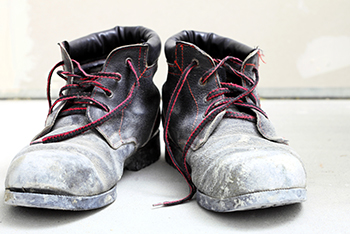 Jan. 28, 2015 – Donald Peter was “exposed” to asbestos decades before the exposure manifested itself through mesothelioma. Recently, a state appeals court ruled that Peter’s claims for “damages” would be too late under the state’s statute of repose, but can continue since the defendant was not engaged in improvements to real property.
Jan. 28, 2015 – Donald Peter was “exposed” to asbestos decades before the exposure manifested itself through mesothelioma. Recently, a state appeals court ruled that Peter’s claims for “damages” would be too late under the state’s statute of repose, but can continue since the defendant was not engaged in improvements to real property.
Donald was a maintenance machinist at Pabst Brewery in Milwaukee and worked at Pabst’s Bottle House for more than 36 years, starting in 1959.
Until 1979, Pabst contracted with Sprinkmann Sons Corporation to install, maintain, and repair asbestos insulation at the facility. After Donald was diagnosed with mesothelioma in 2012, he sued Sprinkmann, alleging exposure to Sprinkmann’s asbestos products caused the injury. Donald died in 2013, and his estate added a wrongful death claim.
Sprinkmann filed a motion for summary judgment, claiming Sprinkmann’s products did not cause the injuries and Wisconsin’s construction statute of repose, Wis. Stat. section 893.89, barred the claims because Donald’s alleged “damages” accrued too late.
Under the construction statute of repose, a plaintiff has 10 years after substantial completion of the real property improvement project to commence an action to recover damages for injuries against persons involved in the improvement to real property.
The time bar doesn’t apply to “damages” that were sustained before April 29, 1994, the effective date of Wisconsin’s construction statute of repose. Donald argued that his “damages” – exposure to asbestos – were sustained long before 1994.
But in in Peter v. Sprinkmann Sons Corp., 2014AP923 (Jan. 27, 2014), a three-judge panel for the District I Court of Appeals interpreted “damages” to mean “legally actionable damages.” The panel ruled that “exposure” to asbestos did not give rise to “damages,” his mesothelioma diagnosis did, and that did not occur until 2012.
The panel noted that some circuits in Wisconsin have ruled that “exposure” is the triggering event, so pre-1994 exposure, if proven, gives rise to claims that are not barred. But other circuits have ruled that “damages” means “legally actionable damages.” The panel adopted the latter interpretation of the word “damages.”
The panel, in an opinion by Reserve Judge Thomas Cane, explained that “this interpretation may seem harsh to asbestos plaintiffs who will not even know they have a claim until long after the statute of repose has barred their action,” but noted that crafting asbestos-related exceptions to time bars is the function of the legislature.
Case Lives On: No Improvement to Real Property
Although Donald’s “legally actionable damages” would be time barred, the panel ruled that summary judgment was not appropriate because Sprinkmann was not engaged in the improvement of real property, which is necessary for the statute of repose to apply.
Section 893.89 puts a 10-year time limitation on actions against persons involved in the improvement of real property. The clock starts when the real property project is substantially complete. But the panel explained why the statute doesn’t apply here.
“Here, the evidence shows that Sprinkmann had an employee working at Pabst on a daily basis doing regular, daily repairs to the insulation on the machinery pipes,” wrote Judge Cane wrote for the panel. “These repairs were not permanent additions. Rather, they were maintenance done to keep the pipes in proper condition.”
The panel noted that the initial installation of insulation may have been an improvement to real property, but Donald claimed exposure to asbestos that was disturbed through daily maintenance of insulated pipes and equipment by Sprinkmann employees.
